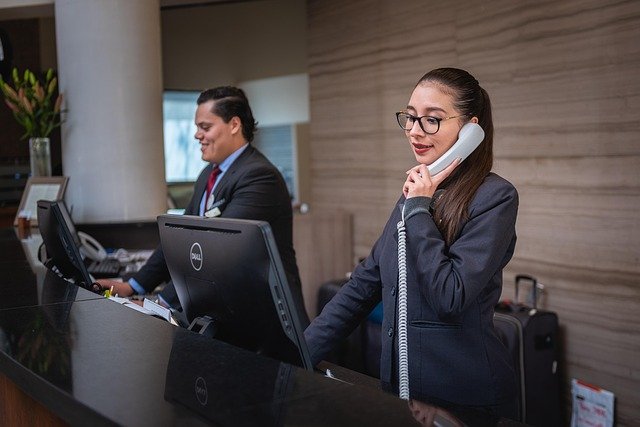Understanding hotel housekeeping jobs: Roles, skills, and opportunities
Hotel housekeeping represents one of the hospitality industry's most essential functions, employing hundreds of thousands of workers across the United States. These positions form the backbone of guest satisfaction, ensuring clean, comfortable, and welcoming accommodations for millions of travelers annually. From luxury resorts to budget-friendly chains, housekeeping professionals maintain the standards that keep guests returning and businesses thriving. Understanding the scope of these roles, required skills, and potential career paths can help job seekers make informed decisions about entering this dynamic field.

What are the roles and responsibilities of hotel housekeepers
Hotel housekeepers perform diverse duties that extend far beyond basic room cleaning. Primary responsibilities include thoroughly cleaning guest rooms, changing linens, restocking amenities, and sanitizing bathrooms. Housekeepers vacuum carpets, dust furniture, empty trash receptacles, and ensure all surfaces meet cleanliness standards. They also conduct routine maintenance checks, reporting any damages or malfunctioning equipment to supervisors.
Beyond individual rooms, many housekeepers maintain public areas including lobbies, hallways, elevators, and recreational facilities. Some positions involve laundry operations, managing inventory of cleaning supplies, and coordinating with other departments. Executive housekeepers and supervisory roles encompass staff scheduling, training new employees, quality control inspections, and budget management. These professionals often serve as the first point of contact for guest concerns related to room conditions.
Which skills are needed for a successful housekeeping career
Success in hotel housekeeping requires both technical abilities and interpersonal skills. Physical stamina stands as a fundamental requirement, as housekeepers spend long hours standing, lifting, bending, and moving between locations. Attention to detail ensures rooms meet established cleanliness standards and guest expectations. Time management skills help workers complete assigned rooms within designated timeframes while maintaining quality.
Communication abilities prove essential for interacting with guests, reporting maintenance issues, and collaborating with team members. Basic understanding of cleaning products, equipment operation, and safety protocols protects both workers and guests. Many positions require bilingual capabilities, particularly in diverse metropolitan areas. Technology skills become increasingly important as hotels adopt digital inventory systems, mobile communication devices, and automated scheduling platforms.
What career opportunities exist in hotel housekeeping
The hotel housekeeping field offers multiple advancement pathways for dedicated professionals. Entry-level room attendants can progress to senior housekeeping positions, floor supervisors, or specialized roles such as laundry managers or public area coordinators. Executive housekeeper positions oversee entire departments, managing staff, budgets, and operational procedures.
Career growth often extends beyond housekeeping departments. Many hospitality professionals transition into front desk operations, guest services, or hotel management roles. Some experienced housekeepers become trainers, developing cleaning protocols and educating new employees. Entrepreneurial opportunities include starting independent cleaning businesses, specializing in commercial or residential services. The skills developed in hotel housekeeping translate well to facilities management, healthcare cleaning, and corporate maintenance positions.
What challenges do hotel housekeepers face
Hotel housekeepers encounter several occupational challenges that potential workers should consider. Physical demands include repetitive motions, heavy lifting, and exposure to cleaning chemicals, which can lead to musculoskeletal injuries if proper techniques aren’t followed. Work schedules often include weekends, holidays, and split shifts to accommodate guest checkout and check-in times.
Time pressure represents another significant challenge, as housekeepers must balance speed with thoroughness to meet productivity targets. Language barriers can complicate communication with guests and supervisors in diverse workplace environments. Some positions offer limited benefits or advancement opportunities, particularly in smaller properties. Dealing with difficult guests, cleaning after inconsiderate behaviors, and maintaining motivation during repetitive tasks requires emotional resilience and professional attitude.
| Hotel Chain | Average Hourly Rate | Benefits Package |
|---|---|---|
| Marriott International | $13-17/hour | Health insurance, paid time off, employee discounts |
| Hilton Hotels | $12-16/hour | Medical coverage, retirement plans, career development |
| Hyatt Hotels | $14-18/hour | Comprehensive benefits, tuition assistance, wellness programs |
| Holiday Inn (IHG) | $11-15/hour | Healthcare options, paid holidays, employee recognition |
| Independent Hotels | $10-14/hour | Varies by property, often limited benefits |
Prices, rates, or cost estimates mentioned in this article are based on the latest available information but may change over time. Independent research is advised before making financial decisions.
How can someone succeed in hotel housekeeping jobs
Success in hotel housekeeping requires developing efficient work routines, maintaining consistent quality standards, and building positive relationships with colleagues and supervisors. New employees should focus on learning proper cleaning techniques, understanding hotel-specific procedures, and mastering time management strategies. Seeking feedback from experienced workers and supervisors helps identify areas for improvement.
Professional development opportunities, such as hospitality training programs or certification courses, can accelerate career advancement. Many hotels offer internal training programs covering customer service, safety protocols, and leadership skills. Maintaining a positive attitude, demonstrating reliability, and showing willingness to take on additional responsibilities often leads to recognition and promotion opportunities.
Understanding hotel operations beyond housekeeping, such as front desk procedures or food service protocols, makes employees more valuable and versatile. Building a strong work ethic, maintaining professional appearance standards, and developing problem-solving abilities contribute to long-term career success in the hospitality industry.
Hotel housekeeping careers offer stable employment opportunities with potential for growth and advancement. While the work presents physical and scheduling challenges, it provides valuable experience in customer service, team collaboration, and operational management. Success depends on developing strong work habits, maintaining quality standards, and pursuing continuous learning opportunities within the dynamic hospitality industry.




